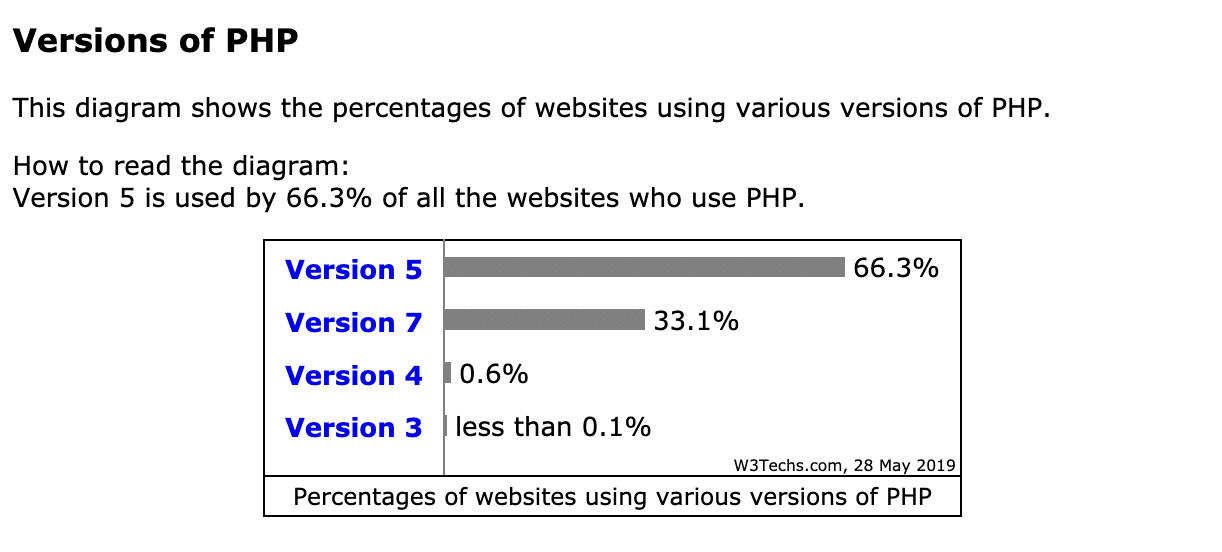
Long time WordPress advocates and design frontrunners Smashing Magazine have already lost patience with WordPress and moved to jamstack. When WordPress loses the developers, WordPress will lose the customers. Recently I’ve had developers quit as they are tired of working with out of date technology (specifically referring to PHP 5.2, 5.3 and 5.4). And that would be to make future versions of WordPress PHP 5.6 and PHP 7 only. With his constant talk of market share, Matt Mullenweg seems unwilling to put at risk a small amount of market share to do the right thing for the platform.

WordPress could do something similar for users on older versions of PHP. We created a plugin BusinessPress to allow a user to safely enable security updates without participating in ever major upgrade. There’s no reason a PHP 5.2 user couldn’t safely remain on WordPress 4.4 or WordPress 4.6 whose most recent releases were also on 6 March 2017. None of these are safe to use, except the latest in the 4.7 series, which is actively maintained.
#Php versions archive
This is an archive of every release we’ve done that we have a record of.
#Php versions download
Ironically they print this nonsense at the top of the secure versions download page: There’s a beautifully maintained download page for all past releases. WordPress offers security updates of WordPress all the way back to 3.7 whose most recent release was on 6 March 2017 (3.7.19). To accelerate adoption of PHP 5.6 and PHP 7, WordPress should end of line support for older PHP on newer versions of WordPress. Participants are currently working on documenting best practices, including recommendations for PHP versions offered, and providing tools for the community. The project recently launched the Make WordPress Hosting community to facilitate collaboration among those with hosting experience. In addition to these recommendations, WordPress’ strategy in the past has been to cultivate relationships with hosts to help improve host configurations for users. In early December 2016, WordPress updated its hosting recommendation to PHP 7+, which should help new users who are approaching hosts to request their sites be put on newer versions of PHP. According to the project’s stats, more than half of all WordPress sites (55.6%) are using unsupported versions of PHP (versions 5.2 – 5.5).


The older versions that previously dominated usage reached End of Life in 20 and are no longer receiving security updates.Īdoption of supported PHP versions is somewhat slower in the WordPress community. PHP 5.6 overtaking older versions is a significant milestone for the PHP community, since it still receives support for critical security issues until December 31, 2018. W3Techs’ methodology takes the top 10 million websites, according to Alexa rankings, to offer a representative sample of established sites without including domain spammers. PHP.net’s usage stats page hasn’t been updated sine 2013 but the project recommends W3Techs’ stats for viewing PHP market share by version. PHP 7 accounts for 3.1% of these websites and PHP 5.x makes up 95.3%, with version 5.6 usage at the top end. PHP is used by 82.6% of all the websites for which W3Techs can detect a server-side programming language. PHP 5.6 usage has steadily increased over the past year and has now overtaken versions 5.3 and 5.4 to be the most widely used version, according to W3Techs’ stats.


 0 kommentar(er)
0 kommentar(er)
